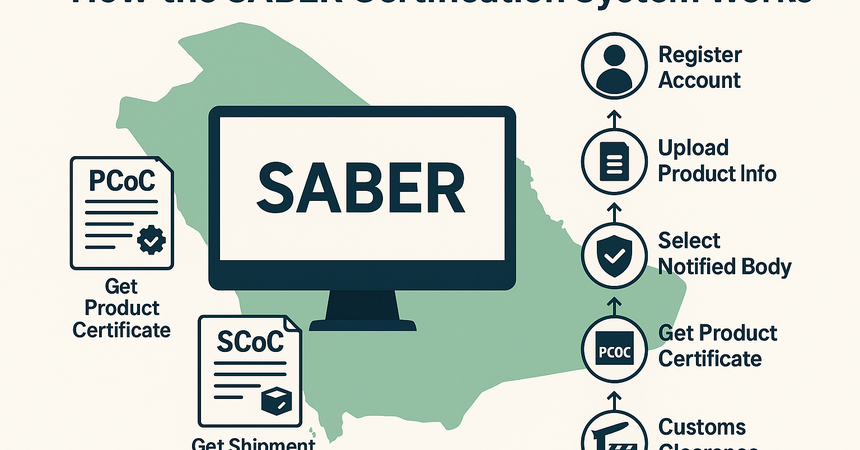SABER is an electronic certification platform introduced in Saudi Arabia as part of the SALEEM program. Its main purpose is to ensure that products comply with local technical regulations and to improve safety standards for all goods entering the Saudi market. Before SABER, certification was paper-based, which was time-consuming and prone to errors. Now, the process is fully digital, transparent, and much faster.
SABER is mandatory for both local manufacturers and importers. Every shipment of goods must go through conformity assessment procedures before it can be distributed or sold in the Kingdom.
Required documents and certificates for SABER registration
To register a product in SABER, companies need to prepare a set of documents, which typically includes:- Technical description (specifications, intended use, operating diagrams).
- Test reports proving compliance with safety and technical standards.
- ISO certificates or other international quality certificates, if applicable.
- User manuals and labeling in Arabic.
- Information about the manufacturer, importer, and distributors.
Main types of certificates:
- • Product Certificate of Conformity (PCoC) — issued for each product type to confirm it meets technical regulations.
- • Shipment Certificate of Conformity (SCoC) — issued for each shipment to confirm compliance of the actual batch.
Steps of registering products in SABER
The registration process can be broken down into several stages:- Creating an account: the manufacturer or importer registers in the SABER system.
- Adding products: all product information and preliminary documents are uploaded.
- Selecting a notified body: an accredited certification body is chosen to conduct conformity assessment and verify the documentation.
- Obtaining the Product Certificate of Conformity: after a successful review, a PCoC is issued for the specific product.
- Issuing the Shipment Certificate of Conformity: for each shipment, a separate SCoC is issued confirming batch compliance.
- Customs clearance: once certificates are in place, goods are cleared through customs more quickly and efficiently.
Many companies make the following mistakes:
- Errors in technical documentation (incorrect specifications or missing translations).
- Submitting an incomplete set of documents, leading to delays or rejections.
- Choosing the wrong notified body, which can significantly slow down the process.
- Lack of required ISO or other international quality certificates.
